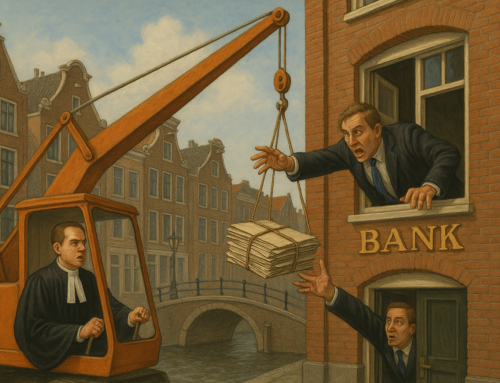What is the chance of success of a lawsuit against a CFD broker? We are often asked that question! In this article, we clarify what kind of behavior by a CFD broker can be grounds for the court to order the broker to refund the deposit. We also explain the difference between a licensed CFD broker and a boiler room selling CFDs.
The three points for a succesfull lawsuit
In the following three situations, a demand for repayment of the deposit stands a chance in the Dutch courts:
- The CFD broker guided you through the choices; first in a friendly and helpful manner and in the next phase with pressure and coercion
- The CFD broker has advised you (once or several times) to make additional deposits after a “margin call” and said that otherwise you will lose your deposit
- The account collapsed after you deposited additional money (whether or not because unexpected “swaps”) were charged
If you answered “yes” to these questions then we believe you can successfully bring a case against the CFD broker for unfair trading practices. Unfair trading practices allow you to recover deposits. Below we explain these three points:
-
The CFD broker guided you through the choices first in a friendly and helpful manner and in the next phase with pressure and coercion
A similar pattern is evident in all cases heard by the Dutch court, as if the same script was followed each time. In the first phase, the account manager is friendly and helpful. Like a friendly guide, he helps open trades. The purpose of this is to get you to deposit more money. In the second stage, the account manager puts pressure on the client and in the third stage the account unexpectedly collapses. We call this the “roadmap” of the untrustworthy CFD broker. Read more here .
-
The CFD broker has advised you (once or several times) to make additional deposits after a “margin call” and said that otherwise you will lose your deposit
If a CFD broker pressures you to make additional deposits “because otherwise you will lose everything,” the broker is concealing two important points that you need to know in order to make a wise decision. First, the broker is concealing the fact that you can also stop, thus reducing your losses. Second, the broker is not telling you that if you deposit more, there is a high to very high probability that you will lose that money on top of the money you have already put in. Thus, by saying that additional deposits are your only chance to save the account, you are being manipulated. We have described this form of manipulation in detail in a background article on how untrustworthy CFD providers operate. You can find this article here .
-
The account collapsed after you deposited additional money (whether or not because unexpected “swaps”) were charged
Many victims of CFD brokers do not realize that this was the broker’s intention from the beginning. Some duped people blame themselves (or are blamed by the account manager for not following the advice properly or not being able to top up because the client ran out of money). What you have to realize is that the broker has an interest in guiding you in such a way that your investments evaporate. Your deposit is then profit for the broker. A CFD broker and his client have an opposite interest. A CFD is a type of contract that you enter into with a counterparty. That counterparty is (directly or indirectly) the broker itself. Suppose you make a profit on your investments, then the other party to the contract has to pay out your profits, and so that results in a loss for that party, the broker itself. And therefore the account managers working for the broker will direct and influence you in such a way that the account eventually collapses. You then lose your money and the broker makes a profit. Read more about the phenomenon of “conflict of interest” in CFD trading here.
Other ways to recognize that you are dealing with an untrustworthy broker
In this article we have simply presented the course of CFD trading, but there are a few other ways in which untrustworthy brokers behave to get their clients’ deposits. We provide an overview below. You may recognize one or more of the following tricks:
- The account manager recommends that you choose a “professional account” (or another account type with benefits, with a fancy name like “diamond” or “gold”)
- You must take a knowledge test to be admitted as a customer, or a knowledge test to get another account type, but you will be “helped” to answer the questions
- You are unable to view or download your transaction history after the account collapse, or you suspect that your transaction history has been tampered with
- You are contacted after the account collapses with a promise that a new account manager will accompany you to make up for the loss, but you will have to re-deposit
- The broker itself also promises to add money if you deposit again after you have already played broke
- You will be approached after the account collapses with a meager compensation offer (called a “settlement agreement”) where you will receive a low fee if you waive a legal claim (note: if you sign such a contract, we can no longer help you!)
- You suspect the account managers are not using their real name, but a fake name
- You were lured with an ad that had nothing to do with the broker, or in other words said, the name of the broker only became clear later
- You are dealing with other parties calling (or sending you emails) about investing (also check your spam box)
- You are approached by an agency claiming they can help you with compensation (read more about recovery fraud here )
- You have been assisted via screen sharing software (such as Anydesk, Screenleap or Teamviewer)
If you recognize one or more of these points, then you are dealing with an untrustworthy broker who is engaging in “unfair trading practices.” You are then in a good legal position to recover your money. It is not the case that all of the points must apply to your case.
Are you dealing with a boiler room or a CFD broker?
By now you may have come to the conclusion that you have a strong case and therefore it makes sense to hire a lawyer to handle the broker. Then, finally, we need to discuss a few exceptions. Unfortunately, not every party can be successfully sued. There is a difference between licensed CFD brokers and so-called boiler rooms. These are actually ghost companies, which do not really exist. Or they do exist, but very briefly, and they are based in a country where the rule of law does not function properly. Then it is much more difficult to take legal action. Recognizing a boiler room can be difficult, because a boiler room can use the same software and also sell CFDs, so it is hard to tell the difference from an official broker that is licensed. In the following three cases, you are most likely dealing with a boiler room:
- The company name cannot be found or the firm uses a fake address. You can investigate this yourself by looking at the very bottom of the investment firm’s website or contact page and checking the name and address information on Google (this method does not always work: some boiler rooms do have an address, but it may be fake).
- You have to pay the investments into different bank accounts that are not in the company’s name (an official company has a bank account in its own name, or you can pay in some other normal way, such as with a credit card or with Ideal).
- You must pay for the investments through bitcoins or through other crypto currencies, and to do so you must first deposit money in the normal way to a cryptoexchange. from your account with this exchange, you must send the crypto as payment of deposits (this means that the broker cannot go to a bank, because a non-existent company cannot open a bank account; read more here ).
Suppose these points apply to you, then you are a victim of a serious scam. You should then definitely report it to the police. In some cases, we can help recover damages in an indirect way, namely by tracing the crypto through blockchain analysis, freezing the wallets and skimming them.
Our specialist: Marius Hupkes





